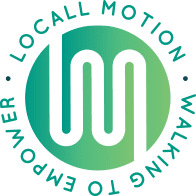
Individuals suffering from depression and/or mental illness often have questions about community mental health recovery services. Living with depression is hard work and you are not alone.
What Do Community Mental Health Teams Do?
Community mental health recovery services and mental health teams work together to develop goals intended to build the skills needed to improve health, promote wellness, and enhance the individual’s quality of life during his/her recovery. Teams typically consist of social workers, mental health professionals, substance abuse professionals, formal supports (i.e.: psychiatrist, teacher, therapist), or natural supports (i.e.: family, friends).
What is Community Mental Health Services?
Mental health service programs are designed for those who are coping/living with symptoms related to mental illness. Some mental health services provide psychosocial rehabilitation to help to reduce symptoms. The program of choice is to assist the individual to achieve the best possible level of functioning and independence. Some of the services an individual could become involved with include wellness management, physical health monitoring, and problem solving skills.
What is a Mental Health Recovery Team?
A recovery team focuses on the individual as a whole, rather than their mental health symptoms and diagnosis. The concept of recovery allows individuals to take control of their lives. Recovery is not about “ignoring” one’s problems but rather seeing beyond individual’s mental health and recognizing and empowering their strengths, dreams, and interests. Recovery teams instill hope and self-discovery rather than impose limits on individuals experiencing mental health symptoms.
What are the Three Forms of Treatment for Depression?
If you are struggling with mental health symptoms related to depression, consider the following interventions:
Talk Therapy (AKA: Counseling or Therapy):
This type of evidenced-based therapy supports individuals as they work with their counselor or therapist and allows them a safe space to work through their mental health symptoms so that that they can understand who they are and work to achieve their goals to improve their life and health.
Medications:
Antidepressants are the most common medication prescribed to treat depression. Not everyone who lives with depression needs medication. For those living with severe symptoms, medications can lessen the intensity of their symptoms. Medications need to be monitored by a doctor/psychiatrist/therapist for its efficacy.
Mindfulness and Self-Care
Life can become busy at times, resulting in forgetting to take care of your own needs. When this happens, you can feel burned out from your life/job, which makes navigating the world difficult. It is important to listen to your body and give it what it needs to heal. Examples of self-care are physical exercise (like walking!), meditation, or yoga.
What are the Benefits of Mental Health Services?
Benefits to mental health services are numerous and it allows people to live a full and healthy life. Sometimes though, mental health symptoms can negatively affect the way an individual thinks about him/herself and the world. To combat this issue, and to bring a sense of hope back in one’s life, it is helpful to discuss prevention services (i.e.: benefits of mental health services) BEFORE the individual is experiencing mental health symptoms. Benefits of therapy are increased sense of joy and contentment, decreased problems with daily living, improved functioning at work, and fewer doctor visit for physical symptoms.
Click here to learn how group walking can support your recovery!


